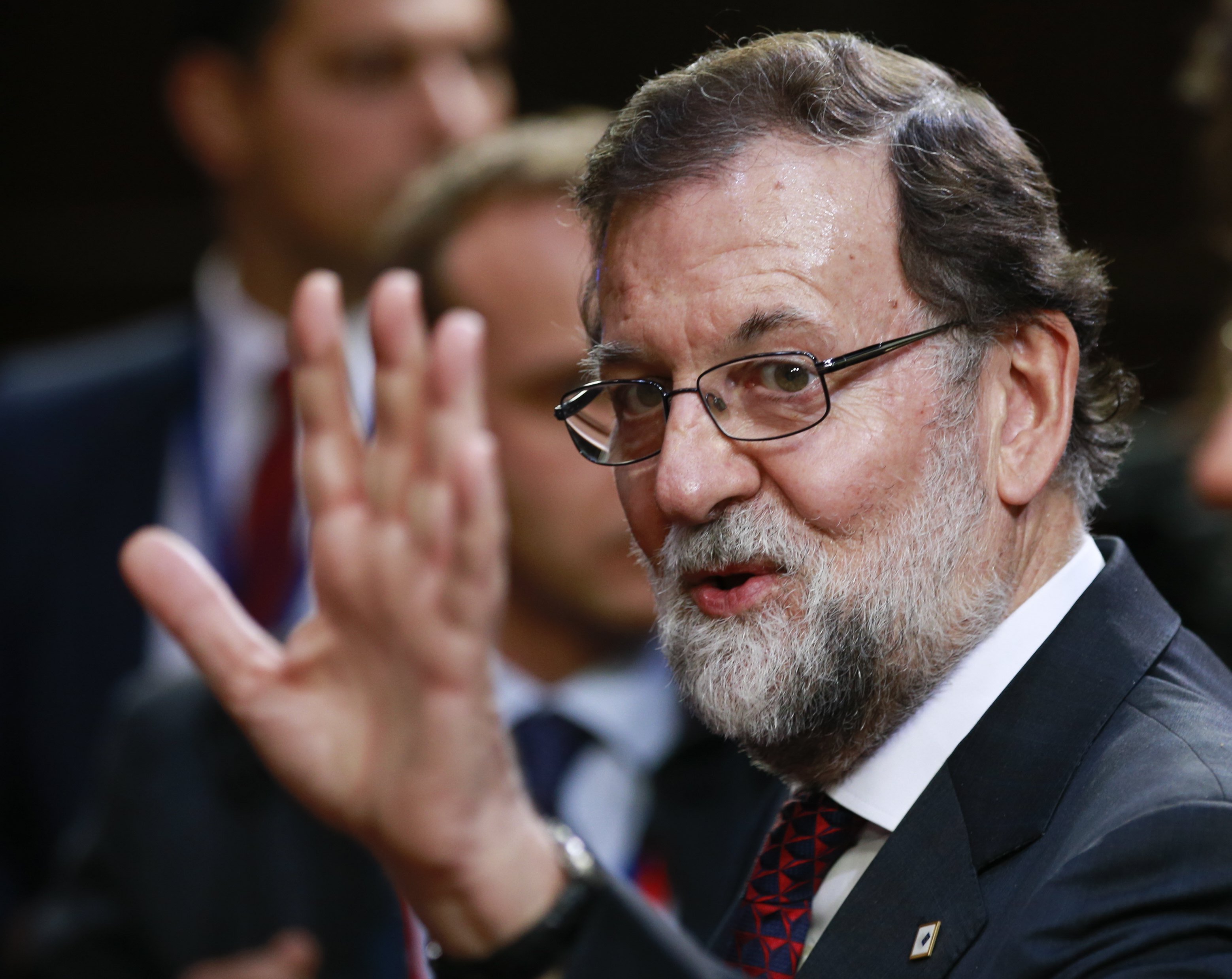The calling of elections in Catalonia has emerged as the most likely long-term scenario following the application of article 155 of the Spanish Constitution, which gives the central government direct control over the autonomous community. That said, the parties that support the measure didn't agree on statements about the potential elections this morning. The Equality spokesperson of PSOE (Spanish Socialist Workers' Party), Carmen Calvo, this morning suggested they would take place in January, whilst the Spanish government said after their cabinet meeting that it was premature to discuss the question. The leader of Ciudadanos (Citizens), Albert Rivera, confused the situation further, saying that Calvo wasn't lying, but that the plan was to wait for prime minister Rajoy's statement this Saturday to make a public statement.
Spanish government spokesperson Íñigo Méndez de Vigo replied in his press conference on Friday that it was "too early" to put a date on elections, implicitly denying PSOE's statement. In his opinion, the priority is to "reestablish the law and coexistence", for which reason he has repeatedly denied that article 155 would be used to suspend autonomy. De Vigo also stretched the time frame, saying that such measures "are not applied overnight". Curiously, this comes at the same time as his PP (Popular Party) has fallen in the polls and just days after sources from the party contemplated something on the order of six months before elections.
PSOE confusion
PSOE's initial statement was strict, although Calvo later softened it. According to central government sources, the agreement between the parties is not yet really concluded, rather that loose ends are to be tied up in the coming hours. Still to be decided, for example, is the role the Catalan Parliament would play after the application of article 155, as El Nacional reported earlier (in Catalan), a source of debate between Spanish vice-president Soraya Sáenz de Santamaría and PSOE. Rajoy himself has said from Brussels, where he is attending a European Council meeting, that he counts on the support of the two parties to finish defining the plan, although he doesn't consider the negotiations finalised either.
Given the confused pacts between PP and PSOE, Rivera emerged trying to shed light on the current situation. The Ciudadanos leader discounted an electoral alliance between the three parties, but confirmed the suggested January date. This coincides with the defence he made some days ago of immediate "legal, free" elections "with guarantees", envisioning his hoped-for scenario of Ciudadanos governing in Catalonia with Inés Arrimadas as president.
Elections regardless
De Vigo did confirm that article 155 would be used to call elections, against the statements of some from their side. He didn't want to give more details on that, or other measures. That said, the probability remains of taking control over the Catalan Interior ministry and the Mossos d'Esquadra (Catalan police), the Catalan Economy ministry, despite the intervention of Spanish treasurer Cristóbal Montoro in Catalan finances, and the Catalan Presidency, to be able to guarantee the organisation of elections. The measures decided upon are expected to be set out by Rajoy this Saturday, after an extraordinary cabinet meeting to be followed by a meeting of the Spanish Senate.
This Senate meeting should be the definitive one where the body enacts article 155, if Catalan president Carles Puigdemont doesn't call elections earlier. According to central government sources, the suspension of self-governance wouldn't take place if Puigdemont does so, as any elections would have be based in the LOREG (Organic Law of the General Electoral Regime), because Catalonia has not yet developed its own electoral law. As such, for the central government this would represent a return to the constitutional order by the Catalan government.

